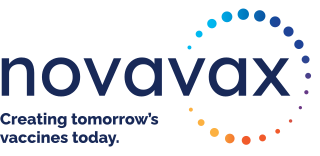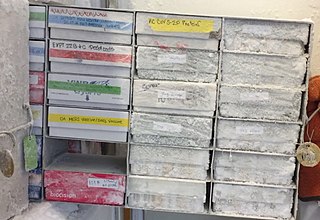Related Research Articles

Biocon Limited is an Indian biopharmaceutical company based in Bangalore. It was founded by Kiran Mazumdar-Shaw in 1978. The company manufactures generic active pharmaceutical ingredients (APIs) that are sold in approximately 120 countries, including the United States and Europe. It also manufactures novel biologics as well as biosimilar insulins and antibodies, which are sold in India as branded formulations. Biocon's biosimilar products are also sold in both bulk and formulation forms in several emerging markets.

The Canadian Institutes of Health Research is a federal agency responsible for funding health and medical research in Canada. Comprising 13 institutes, it is the successor to the Medical Research Council of Canada.
The pharmaceutical industry in India was valued at an estimated US$42 billion in 2021 and is estimated to reach $130 billion by 2030. India is the world's largest provider of generic medicines by volume, with a 20% share of total global pharmaceutical exports. It is also the largest vaccine supplier in the world by volume, accounting for more than 60% of all vaccines manufactured in the world. Indian pharmaceutical products are exported to various regulated markets including the US, UK, European Union and Canada.

Zydus Lifesciences Limited, formerly known as Cadila Healthcare Limited, is an Indian multinational pharmaceutical company headquartered in Ahmedabad, which is primarily engaged in the manufacture of generic drugs. The company ranked 100th in the Fortune India 500 list in 2020.


Samsung Biologics is a South Korean biotechnology company headquartered in Songdo, Incheon, South Korea. The biotech division of Samsung Group, it provides contract development and manufacturing (CDMO) services to the biopharmaceutical industry.

Soumya Swaminathan is an Indian paediatrician and clinical scientist known for her research on tuberculosis and HIV. From 2019 to 2022, she served as the chief scientist at the World Health Organization under the leadership of Director General Tedros Adhanom Ghebreyesus. Previously, from October 2017 to March 2019, she was the Deputy Director General of Programmes (DDP) at the World Health Organization.
Gagandeep Kang FRS is an Indian microbiologist and virologist who is the Professor in the Department of Gastrointestinal Sciences at the Christian Medical College, Vellore, India and from August 2016 to July 2020 was executive director of the Translational Health Science and Technology Institute, Faridabad, an autonomous institute of the Department of Biotechnology, Ministry of Science and Technology, Government of India. Her major research focus is on viral infections in children, and the testing of rotaviral vaccines. She also works on other enteric infections and their consequences when children are infected in early life, sanitation and water safety. She was awarded the prestigious Infosys Prize in Life Sciences in 2016 for her contributions to understanding the natural history of rotavirus and other infectious diseases. In 2019, she became the first Indian woman to be elected as a Fellow of the Royal Society. She was on the Life Sciences jury for the Infosys Prize in 2020.
The Coalition for Epidemic Preparedness Innovations (CEPI) is a foundation that takes donations from public, private, philanthropic, and civil society organisations, to finance independent research projects to develop vaccines against emerging infectious diseases (EID).
Inovio Pharmaceuticals is an American biotechnology company focused on the discovery, development, and commercialization of synthetic DNA products for treating cancers and infectious diseases. In April 2020, Inovio was among some 100 companies, academic centers, or research organizations developing a vaccine candidate for treating people infected with COVID-19, with more than 170 total vaccine candidates in development.

Richard Hatchett is an American oncologist and epidemiologist who has been serving as chief executive officer of the Coalition for Epidemic Preparedness Innovations (CEPI) in Oslo and London since 2017. He was awarded the Secretary of Health and Human Services's Award for Distinguished Service.

The COVID-19 pandemic has affected many scientific and technical institutions globally, resulting in lower productivity in a number of fields and programs. However, the impact of the pandemic has also led to the opening of several new research funding lines for government agencies around the world.

The Access to COVID-19 Tools Accelerator, or the Global Collaboration to Accelerate the Development, Production and Equitable Access to New COVID-19 diagnostics, therapeutics and vaccines, is a G20 initiative announced by pro-tem Chair Mohammed al-Jadaan on 24 April 2020. A call to action was published simultaneously by the World Health Organization (WHO) on 24 April. As of January 2022, it was the largest international effort to achieve equitable access to COVID-19 health technologies.

As of 23 September 2023, 13.4 billion COVID-19 vaccine doses have been administered worldwide, with 67.9 percent of the global population having received at least one dose. While 4.19 million vaccines were then being administered daily, only 22.3 percent of people in low-income countries had received at least a first vaccine by September 2022, according to official reports from national health agencies, which are collated by Our World in Data.

SARS-CoV-2, the virus that causes COVID-19, was isolated in late 2019. Its genetic sequence was published on 11 January 2020, triggering an urgent international response to prepare for an outbreak and hasten the development of a preventive COVID-19 vaccine. Since 2020, vaccine development has been expedited via unprecedented collaboration in the multinational pharmaceutical industry and between governments. By June 2020, tens of billions of dollars were invested by corporations, governments, international health organizations, and university research groups to develop dozens of vaccine candidates and prepare for global vaccination programs to immunize against COVID‑19 infection. According to the Coalition for Epidemic Preparedness Innovations (CEPI), the geographic distribution of COVID‑19 vaccine development shows North American entities to have about 40% of the activity, compared to 30% in Asia and Australia, 26% in Europe, and a few projects in South America and Africa.

The CureVac COVID-19 vaccine was a COVID-19 vaccine candidate developed by CureVac N.V. and the Coalition for Epidemic Preparedness Innovations (CEPI). The vaccine showed inadequate results in its Phase III trials with only 47% efficacy. In October 2021 CureVac abandoned further development and production plans for CVnCoV and refocused efforts on a cooperation with GlaxoSmithKline.

SCB-2019 is a protein subunit COVID-19 vaccine developed by Clover Biopharmaceuticals using an adjuvant from Dynavax technologies. Positive results of Phase I trials for the vaccine were published in The Lancet and the vaccine completed enrollment of 29,000 participants in Phase II/III trials in July 2021. In September 2021, SCB-2019 announced Phase III results showing 67% efficacy against all cases of COVID-19 and 79% efficacy against all cases of the Delta variant. Additionally, the vaccine was 84% effective against moderate cases and 100% effective against hospitalization.

Corbevax is a protein subunit COVID-19 vaccine developed by Texas Children's Hospital Center for Vaccine Development and Baylor College of Medicine in Houston, Texas and Dynavax technologies based in Emeryville, California. It is licensed to Indian biopharmaceutical firm Biological E. Limited (BioE) for development and production.

Skycovione is a COVID-19 vaccine candidate developed by SK Bioscience and the Institute for Protein Design of the University of Washington, It is South Korea's first homegrown COVID-19 vaccine and utilizes GSK's AS03 adjuvant technology.

202-CoV is a COVID-19 vaccine candidate developed by Shanghai Zerun Biotechnology Co., Ltd., Walvax Biotech. It is one of several candidates under development by Walvax.
References
- ↑ Heath, Elizabeth Weise and David (26 April 2020). "'Our moon shot': The world needs a coronavirus vaccine ASAP. Despite drugmakers billion-dollar bets, one might not be available for years". USA TODAY. Retrieved 2020-05-20.
- ↑ Dumiak, Michael (2017). "A Crisis Gives You WIngs". Iavi Report : Newsletter on International Aids Vaccine Research. 21 (1): 4–9. PMID 29901872 . Retrieved 2020-05-20.
- 1 2 Wright, Rob (27 March 2020). "The Little-Known Coalition Tasked With Saving The World From COVID-19". Life Science Leader. Retrieved 2020-05-20.
- ↑ MacNeil, Matt (2022-02-16). "James Robinson receives grant to study biosimilars". UC Berkeley Public Health. Retrieved 2023-04-06.